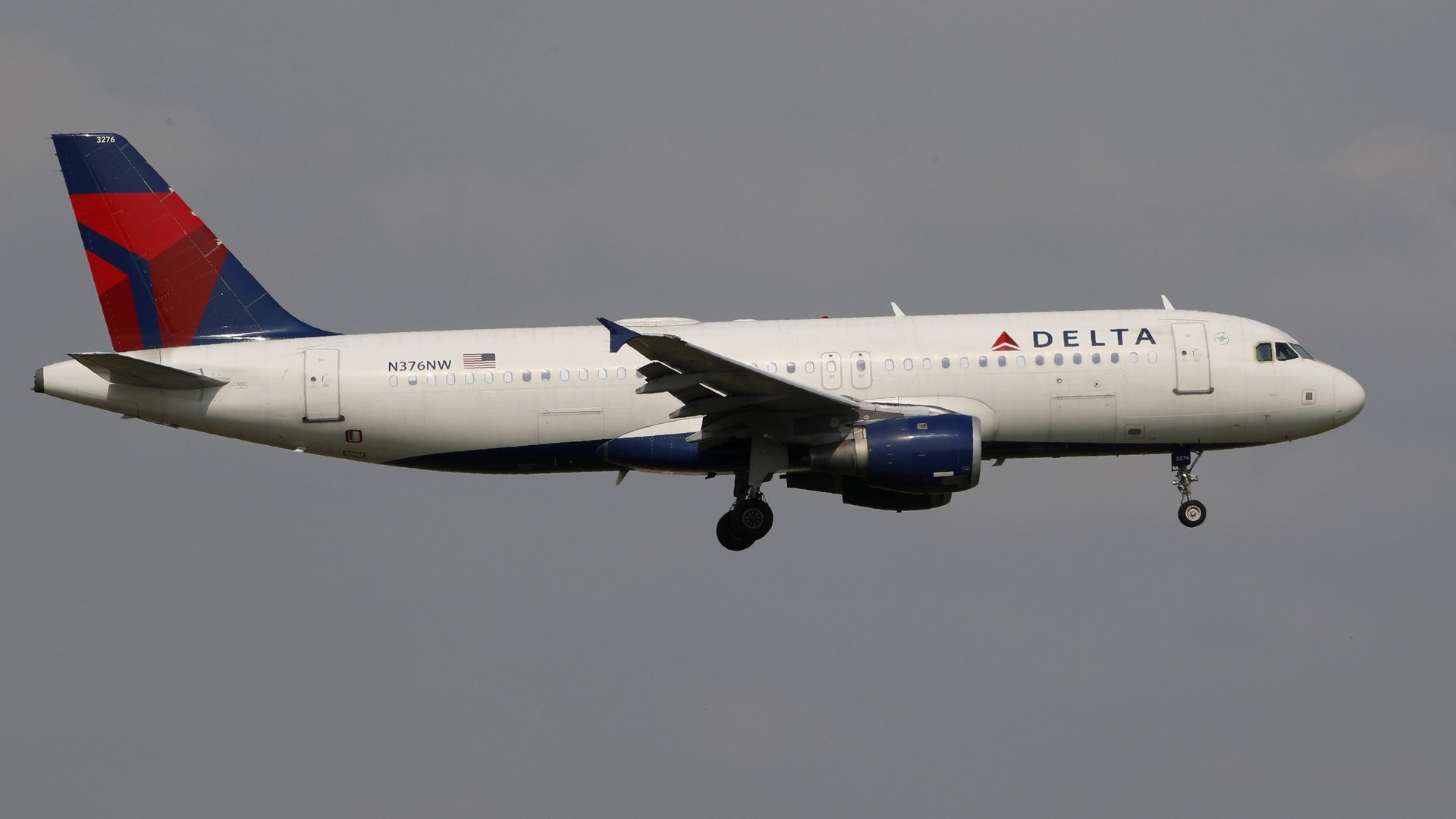Delta flight attendants say their high-tech uniforms are making them sick
At first glance, the outfits issued to Delta staff in May 2018 resembled superhero costumes. They were ultra-stretchy, brightly colored, designed for flying, and dizzyingly high-tech. And they resisted almost everything—wrinkles, water, stains, and static alike. They even self-deodorized. But these magic uniforms, worn today by roughly 64,000 Delta employees, including flight attendants, Sky Club staff, gate agents, and so on, have additional, much more concerning properties.


At first glance, the outfits issued to Delta staff in May 2018 resembled superhero costumes. They were ultra-stretchy, brightly colored, designed for flying, and dizzyingly high-tech. And they resisted almost everything—wrinkles, water, stains, and static alike. They even self-deodorized. But these magic uniforms, worn today by roughly 64,000 Delta employees, including flight attendants, Sky Club staff, gate agents, and so on, have additional, much more concerning properties.
Over 500 Delta staff members say the chemicals used to give their uniforms these futuristic qualities have made them sick. They’re now suing the manufacturer, Lands’ End, for charges including negligence and “strict design defects” over the uniforms, which they say “pose an ongoing, unreasonable risks of physical harm…including threatening the [employees] with future serious health problems because of an allergic and/or sensitization response.”
Online, workers posted images of angry red rashes, and, in a class action suit filed Dec. 31, they shared stories of breathing difficulties, skin blisters, vocal cord problems, blurred vision, nosebleeds, ringing ears, migraine headaches, and fatigue. The problems continue to this day, they said.
To find out exactly which chemicals were making them sick, employees performed at-home tests on the garments, which they said revealed the presence of chromium, antimony, mercury, formaldehyde, fluorine, and bromine, all of which have been found to be harmful to humans. The Association of Flight Attendants union has also committed to testing the uniforms.
Delta, for its part, seems unconcerned. In a statement, the airline said the uniforms had undergone rigorous testing: “The results of the study confirm our uniforms meet the highest textile standards.” Only the “optional flight attendant apron” had not passed muster, it said, and was thus removed from the 55-item collection.
Flight attendant uniforms have often resulted in controversy. In 2018, American Airlines employees sued Twin Hill, a Lands End competitor, over claims that they too were being made sick. (Lands’ End has since been tapped for the replacement uniforms.) And then, of course, there’s the political side. At many airlines, including Delta, female employees must wear high heels. Others oblige attendants to wear makeup or, in the case of British Airways and EasyJet, impose non-numerical weight restrictions.